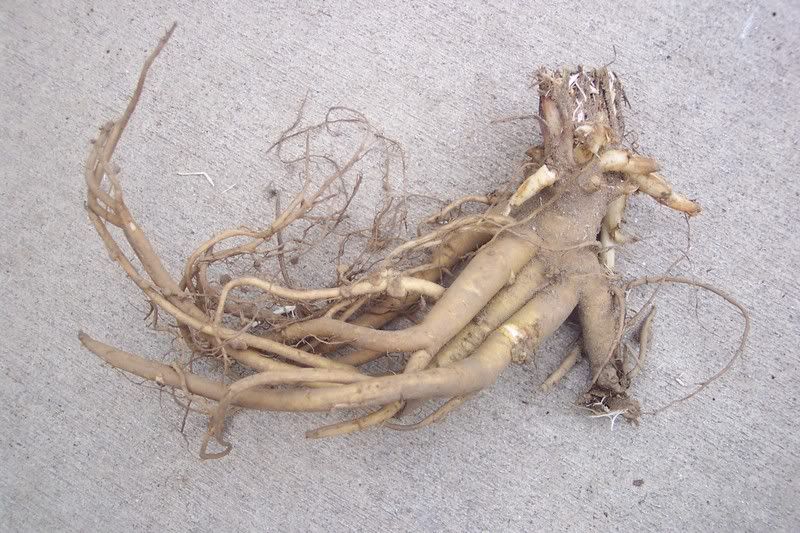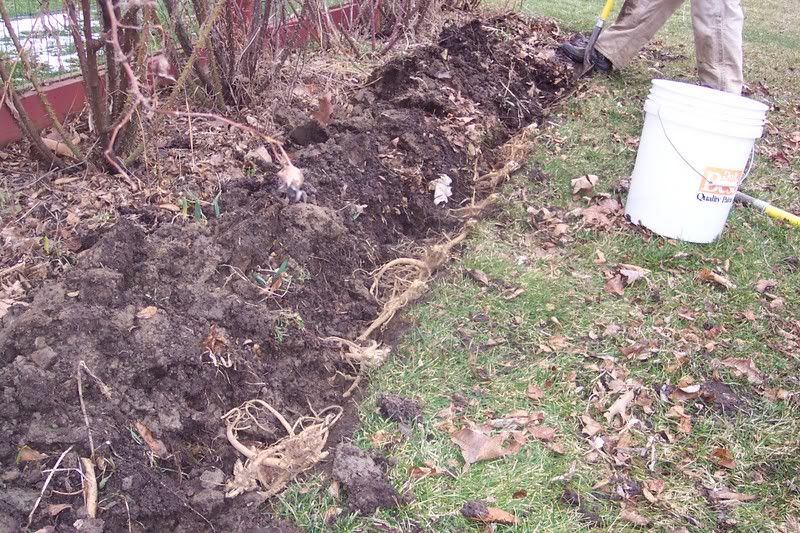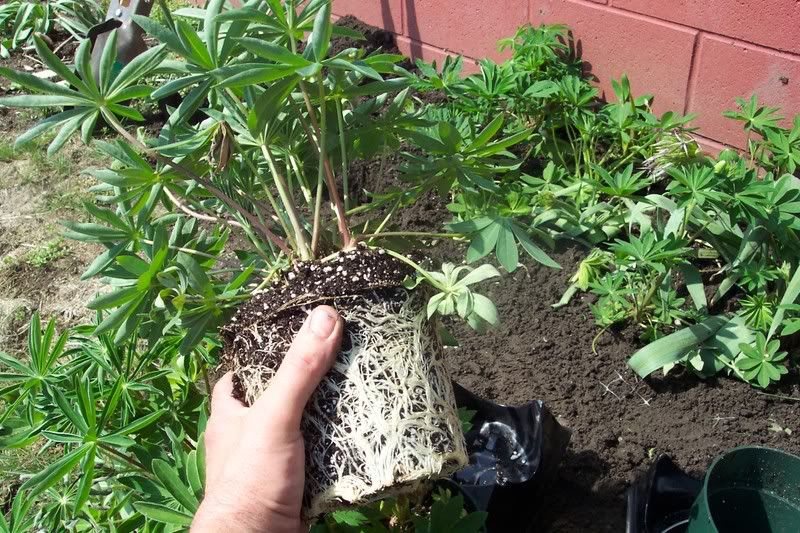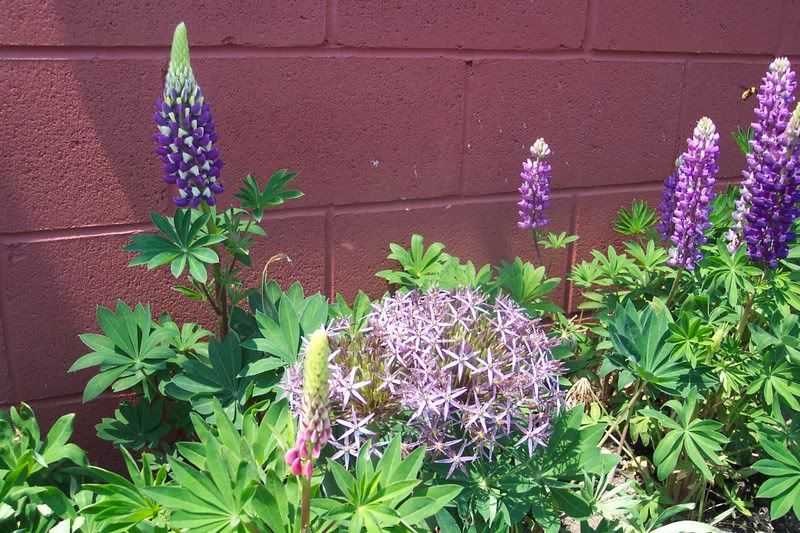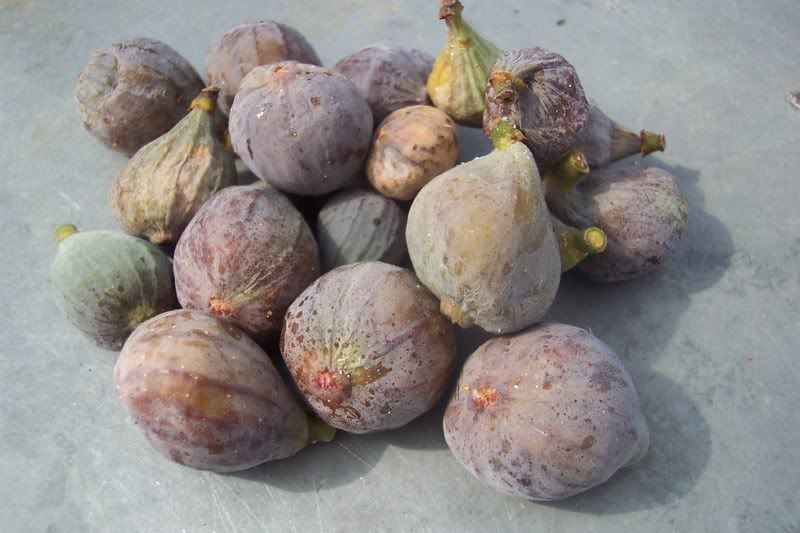There was quite a rhubarb out in the garden this morning.
No, it wasn’t a loud and boisterous argument that we had… it was a couple of huge rhubarb plants in need of harvest.
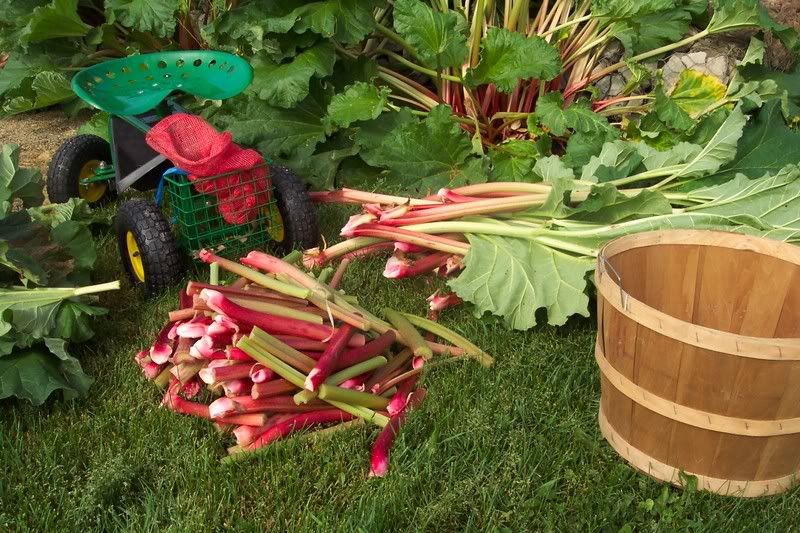
The easiest (and healthiest for the plant) way to harvest rhubarb is to just grab a stalk near the bottom of the plant and give it a sideways pull. They come right off with a satisfying “snap”.
Only the stalks (technically, a “petiole”) can be eaten. The leaves are poisonous so they make their contribution by going into the compost.
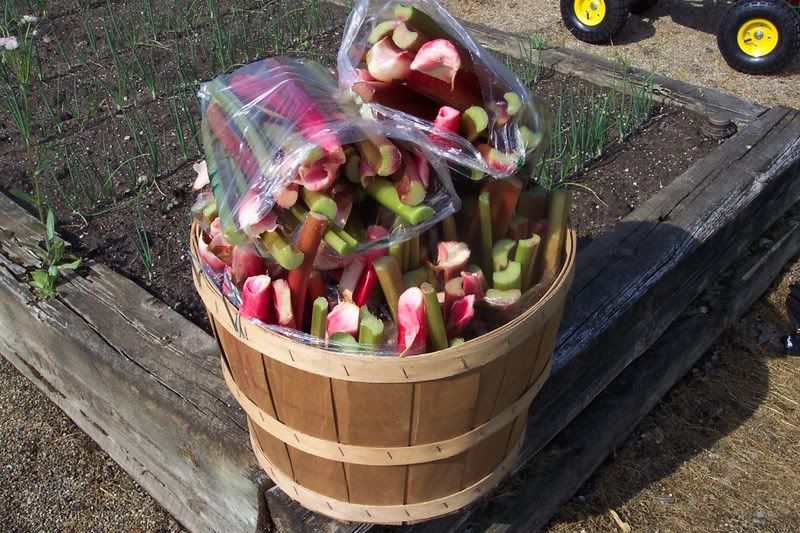
When I delivered this bushel of rhubarb, I took an informal poll asking how each person was going to prepare their share of the rhubarb.
Rhubarb pie was the most common response, followed by rhubarb sauce, rhubarb wine was mentioned as a distant third.
One lady mentioned that as a child in Germany, her mother would pick a tender stalk of rhubarb for her, dip it in sugar and serve it fresh as a sweet candy-like treat. I’m going to try that tomorrow, it sounds delicious…kind of sweet and sour and crunchy.
This time of the year (during harvest time) rhubarb will send up seed stalks. If you want to keep your harvest going, break off those seed stalks as soon as you see them. This way, you should be able to harvest stalks from a mature rhubarb plant (three years or older) for several weeks.
Now, we have had the other kind of “rhubarb” in the garden from time to time but that’s a whole ‘nother story!
Bob
